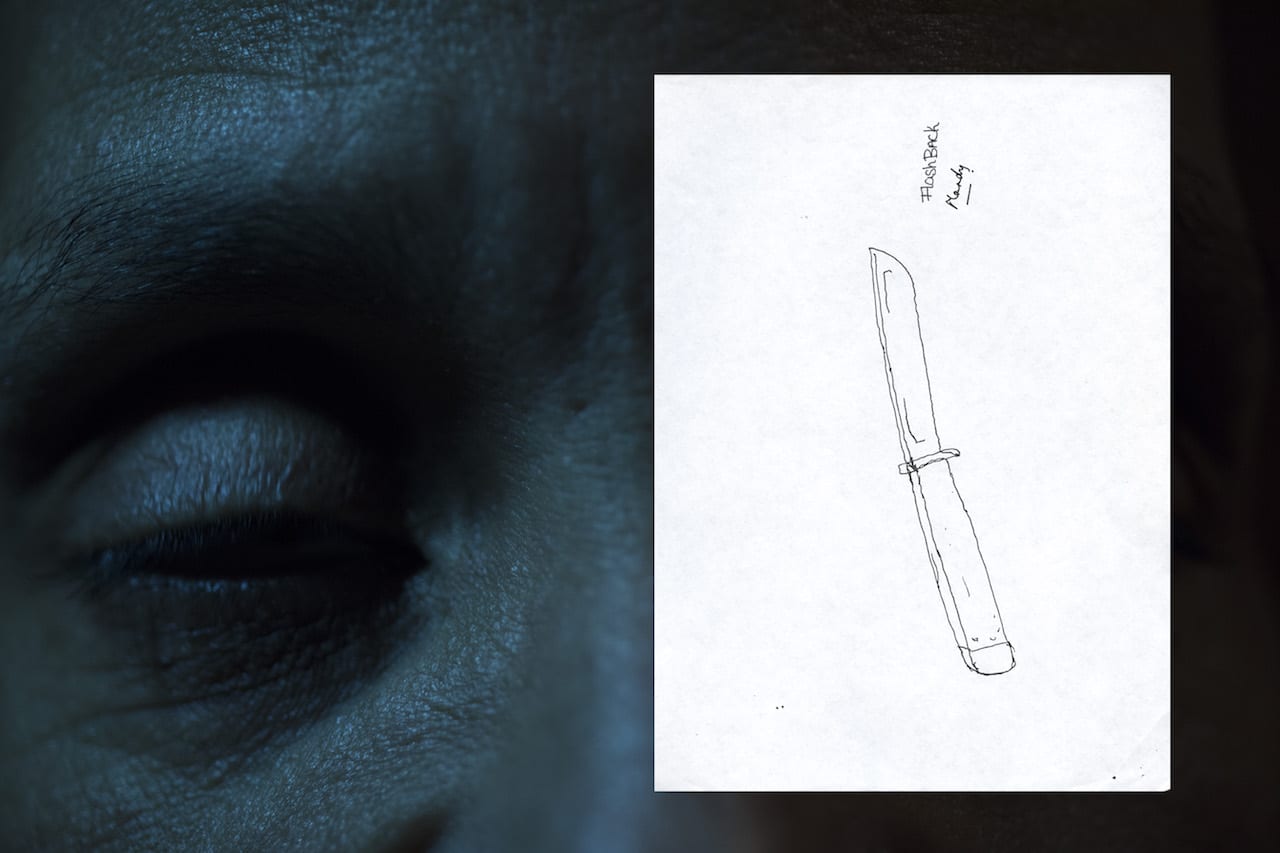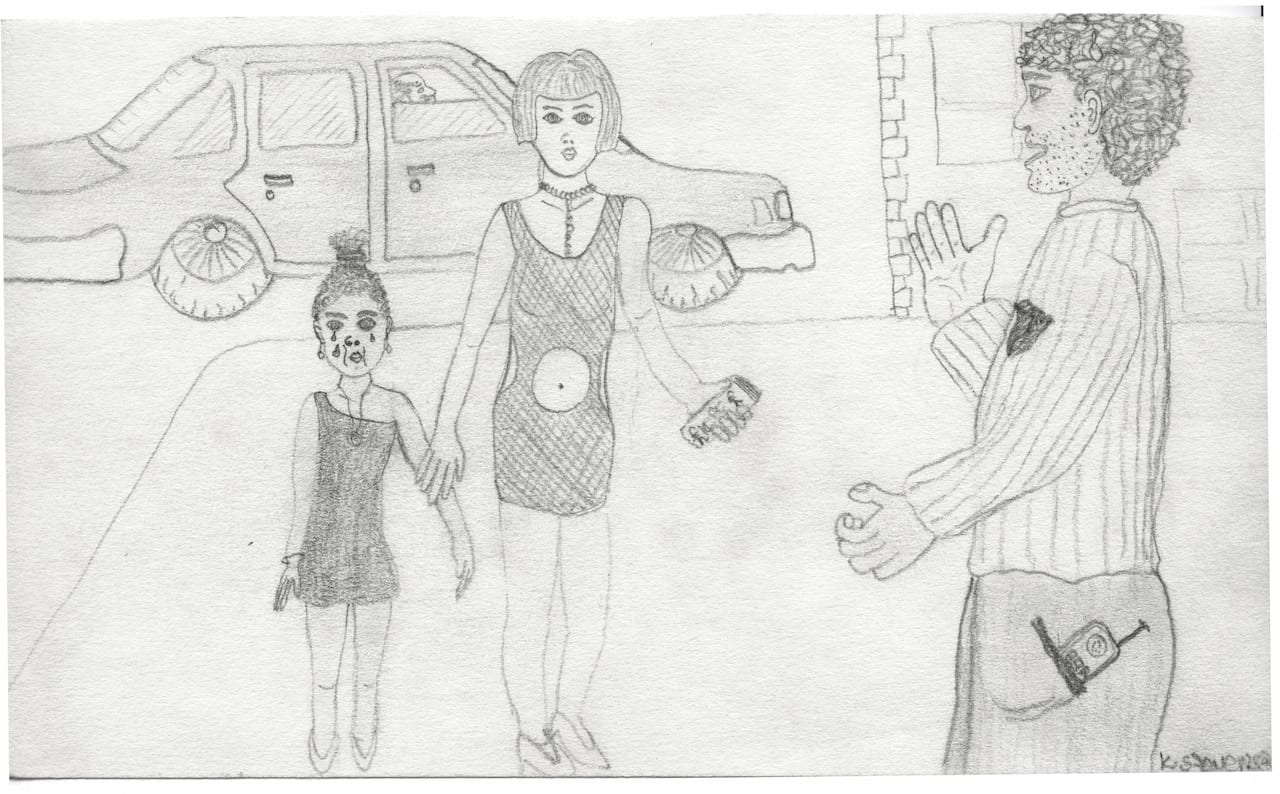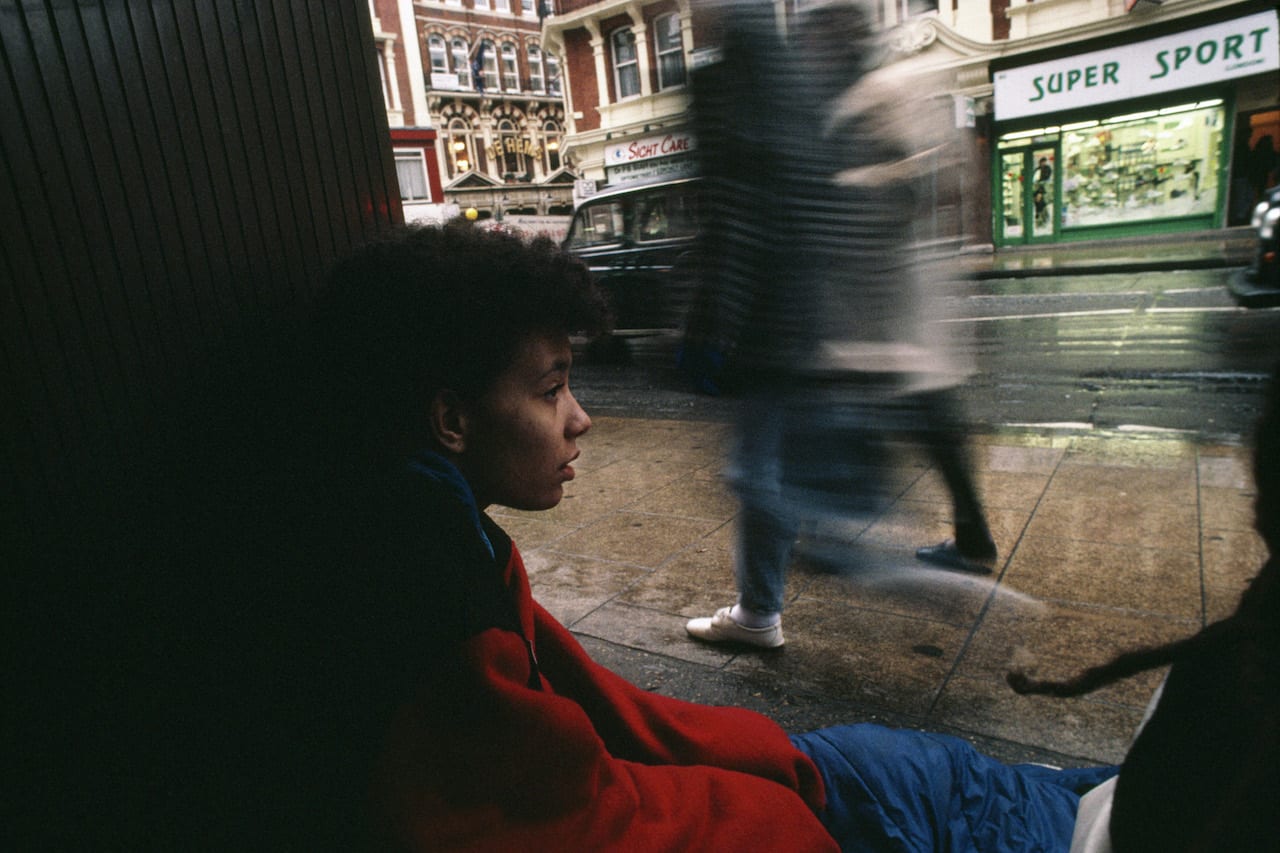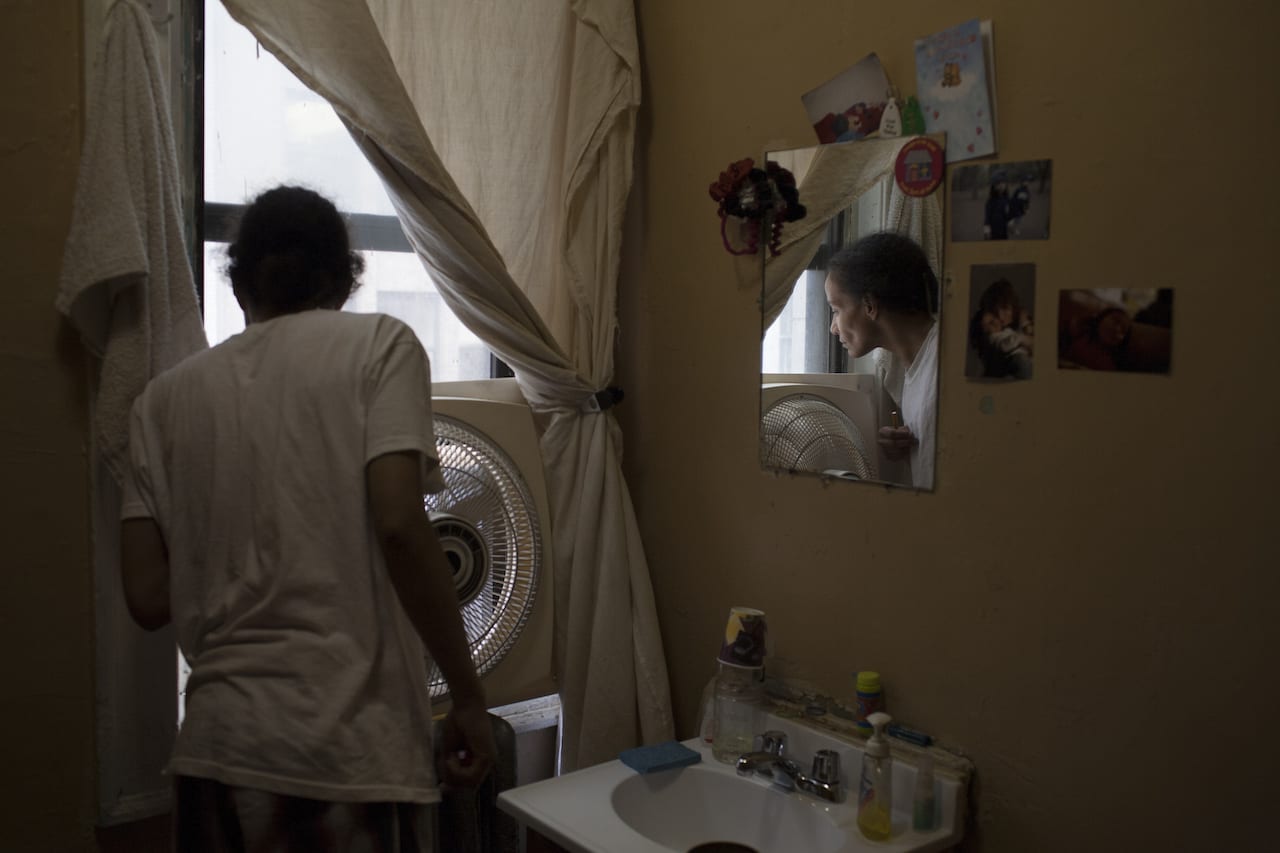Every so often there is an opus that challenges received wisdom not just on a single subject, but on a range of them. An Autobiography of Miss Wish, the collaboration between Noor photographer Nina Berman and Kimberly Stevens, the protagonist, published by Kehrer, is one of them. The book reads many ways: as a memoir, a commentary on justice systems and social services, an indictment of our disregard for the less fortunate and a reflection on documentary photography.
The hefty volume is, first and foremost, the story of a black woman who once went by the name of Cathy Wish, who Berman met on the streets of London’s West End in 1990 while studying the legacy of Margaret Thatcher’s neoliberal policies. “I noticed her banging on a door, headphones in her ears and cigarette in hand,” the US photojournalist says.
“When I told her I was from New York, she immediately became friendly. She was engaging, liked to make conversation, asked a lot of questions and was a good listener. She was smart, creative and funny. We just hit it off.” Wish spoke of her life marred by abuse, violence, child pornography and sex trafficking. Since then, the two have formed a deep and complex relationship.

In 1993, Wish fled the UK for the Big Apple, where she took the name Kimberly Stevens. As well as being her friend, Berman became her emergency contact, de facto next-of-kin and advocate. She accompanied her to appointments with health and legal specialists and safeguarded, per Stevens’ wishes, her diary and a growing archive of official documents, drawings, notes and letters. “Instead of being a story for me to photograph, she became a significant person in my life,” says Berman. “For a long time, either I didn’t take any pictures of her or they were inconsequential to who we were together.”
Stevens dreamed of publishing her own title. Thanks to her sketches of crime scenes and flashbacks, her diary entries, her correspondence with Berman, the photos they made together, medical records and other ephemera, she’s now able to share her truth. “For someone who has been through what she has, and been forced into silence through terror, the ability to assert herself as a narrator and author can’t be understated,” says Berman, echoing some of the reasons her subject gives for doing the project. “My whole life had to be a secret swept under the rug,” said Stevens. “I want to see it in a book. No more secrets.”
Honesty permeates the work, from both Stevens and Berman. The photographer doesn’t shy away from sharing the challenges of developing a relationship with someone battling addiction and trauma, nor of navigating, as a journalist, the making of a cohesive body of work about it. Ethics required her to fact-check Stevens’ stories but she grew uneasy with the task since so often the burden of proof falls on victims of abuse.

Similarly, she came to question tenets of the industry. “I could have gone to crack houses with her; I could have witnessed her turn tricks to get money,” she says. “I would think: ‘This is what photojournalists are supposed to do’, or,‘Those are the good pictures’. But I didn’t want to do it; I didn’t want to see it and I didn’t believe in the power of those types of images. They only reinforce negative stereotypes and, in the end, they would have humiliated her.”
Instead, she looked for avenues to a deeper understanding; hence the nature of the work with Stevens, “an aesthetic experiment in creating a truly collaborative documentary that isn’t just an author having someone write on the picture, or draw on it”. She also intends it as a demonstration of the worth of her subject’s history. “Just because someone is labelled psychotic, has PTSD or goes in and out of logical thinking, that doesn’t mean they don’t deserve, or are unable, to tell their story.”
An Autobiography of Miss Wish accomplishes that and more. Through the experiences shared by Stevens, it makes the reader aware of entrenched injustice and how inadequately society acts towards those who try to make a life for themselves in the face of trauma. Recalling the six months Stevens spent in Rikers Island prison, Berman admits she didn’t know how abusive the infamous jail was. “These things are now very personal for me,” she says. Thanks to the intimate and unabashed tone of the book, they become personal to the reader too.
www.ninaberman.com https://noorimages.com An Autobiography of Miss Wish by Nina Berman is published by Kehrer, priced €49 www.kehrerverlag.com/en/nina-berman-an-autobiography-of-miss-wish This article was first published in the October 2017 issue of BJP.



